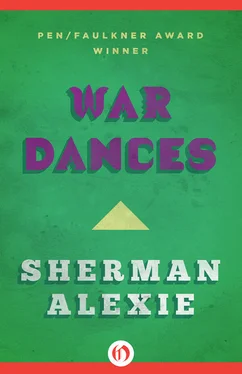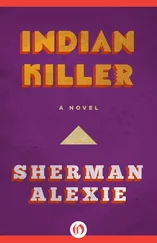So with all that information in mind, why did I grab my son’s baseball bat and open the basement door? Why did I creep down the stairs? Trust me, I’ve spent many long nights awake, asking myself those questions. There are no easy answers. Of course, there are many men — and more than a few women — who believe I was fully within my rights to head down those stairs and confront my intruder. There are laws that define — that frankly encourage — the art of self-defense. But since I wasn’t interested in defending my property, and since my family and I were not being directly threatened, what part of my self could I have possibly been defending?
In the end, I think I wasn’t defending anything at all. I’m an editor — an artist — and I like to make connections; I am paid to make connections. And so I wonder. Did I walk down those stairs because I was curious? Because a question had been asked (Who owned the feet that landed on my basement floor?) and I, the editor, wanted to discover the answer?
So, yes, slowly I made my way down the stairs and through the dark hallway and turned the corner into our downstairs family room — the man cave, really, with the big television and the pool table — and saw a teenaged burglar. I stood still and silent. Standing with his back to me, obsessed with the task — the crime — at hand, he hadn’t yet realized that I was in the room with him.
Let me get something straight. Up until that point I hadn’t made any guesses as to the identity of my intruder. I mean, yes, I live in a black neighborhood — and I’m not black — and there had been news of a series of local burglaries perpetrated by black teenagers, but I swear none of that entered my mind. And when I saw him, the burglar, rifling through my DVD collection and shoving selected titles into his backpack — he was a felon with cinematic taste, I guess, and that was a strangely pleasing observation — I didn’t think, There’s a black teenager stealing from me. I only remembering being afraid and wanting to make my fear go away.
“Get the fuck out of here!” I screamed. “You fucking fucker!”
The black kid was so startled that he staggered into my television — cracking the screen — and nearly fell before he caught his balance and ran for the broken window. I could have — would have — let him make his escape, but he stopped and turned back toward me. Why did he do that? I don’t know. He was young and scared and made an irrational decision. Or maybe it wasn’t irrational at all. He’d slashed his right hand when he crawled through the broken window, so he must have decided the opening with its jagged glass edges was not a valid or safe exit — who’d ever think a broken window was a proper entry or exit — so he searched for a door. But the door was behind me. He paused, weighed his options, and sprinted toward me. He was going to bulldoze me. Once again, I could have made the decision to avoid conflict and step aside. But I didn’t. As that kid ran toward me I swung the baseball bat with one hand.
I often wonder what would have happened if that bat had been made of wood. When Max and I had gone shopping for bats, I’d tried to convince him to let me buy him a wooden one, an old-fashioned slugger, the type I’d used when I was a Little Leaguer. I’ve always been a nostalgic guy. But my son recognized that a ten-dollar wooden bat purchased at Target was not a good investment.
“That wood one will break easy,” Max had said. “I want the lum-a-lum one.”
Of course, he’d meant to say aluminum; we’d both laughed at his mispronunciation. And I’d purchased the lum-a-lum bat.
So it was a metal bat that I swung one-handed at the black teenager’s head. If it had been cheap and wooden, perhaps the bat would have snapped upon contact and dissipated the force. Perhaps. But this bat did not snap. It was strong and sure, so when it made full contact with the kid’s temple, he dropped to the floor and did not move.
He was dead. I had killed him.
I fell to my knees next to the kid, dropped my head onto his chest, and wept.
I don’t remember much else about the next few hours, but I called 911, opened the door for the police, and led them to the body. And I answered and asked questions.
“Did he have a gun or knife?”
“I don’t know. No. Well, I didn’t see one.”
“He attacked you first?”
“He ran at me. He was going to run me over.”
“And that’s when you hit him with the bat?”
“Yes. It’s my son’s bat. It’s so small. I can’t believe it’s strong enough to — is he really dead?”
“Yes.”
“Who is he?”
“We don’t know yet.”
His name was Elder Briggs. Elder: such an unusual name for anybody, especially a sixteen-year-old kid. He was a junior at Garfield High School, a B student and backup point guard for the basketball team, an average kid. A good kid, by all accounts. He had no criminal record — had never committed even a minor infraction in school, at home, or in the community — so why had this good kid broken into my house? Why had he decided to steal from me? Why had he made all the bad decisions that had led to his death?
The investigation was quick but thorough, and I was not charged with any crime. It was self-defense. But then nothing is ever clear, is it? I was legally innocent, that much is true, but was I morally innocent? I wasn’t sure, and neither were a significant percentage of my fellow citizens. Shortly after the police held the press conference that exonerated me, Elder’s family — his mother, father, older brother, aunts, uncles, cousins, friends, and priest — organized a protest. It was small, only forty or fifty people, but how truly small can a protest feel when you are the subject — the object — of that protest?
I watched the live coverage of the event. My wife and son, after briefly returning from Chicago, had only spent a few days with me before they fled back to her parents. We wanted to protect our child from the media. An ironic wish, considering that the media were only interested in me because I’d killed somebody else’s child.
“The police don’t care about my son because he’s black,” Elder’s mother, Althea, said to a dozen different microphones and as many cameras. “He’s just another black boy killed by a white man. And none of these white men care.”
As Althea continued to rant about my whiteness, some clever producer — and his editor — cut into footage of me, the white man who owned a baseball bat, walking out of the police station as a free man. It was a powerful piece of editing. It made me look pale and guilty. But all of them — Althea, the other protesters, the reporters, producers, and editors — were unaware of one crucial piece of information: I am not a white man.
I am an enrolled member of the Spokane Tribe of Indians. Oh, I don’t look Indian, or at least not typically Indian. Some folks assume I’m a little bit Italian or Spanish or perhaps Middle Eastern. Most folks think I’m just another white guy who tans well. And since I’d just spent months in a dark editing room, I was at my palest. But I grew up on the Spokane Indian Reservation, the only son of a mother and father who were also Spokane Indians who grew up on our reservation. Yes, both of my grandfathers had been half-white, but they’d both died before I was born.
I’m not trying to be holy here. I wasn’t a traditional Indian. I didn’t dance or sing powwow or speak my language or spend my free time marching for Indian sovereignty. And I’d married a white woman. One could easily mock my lack of cultural connection, but one could not question my race. That’s not true, of course. People, especially other Indians, always doubted my race. And I’d always tried to pretend it didn’t matter — I was confident about my identity — but it did hurt my feelings. So when I heard Althea Riggs misidentify my race — and watched the media covertly use editing techniques to confirm her misdiagnosis — I picked up my cell phone and dialed the news station.
Читать дальше












